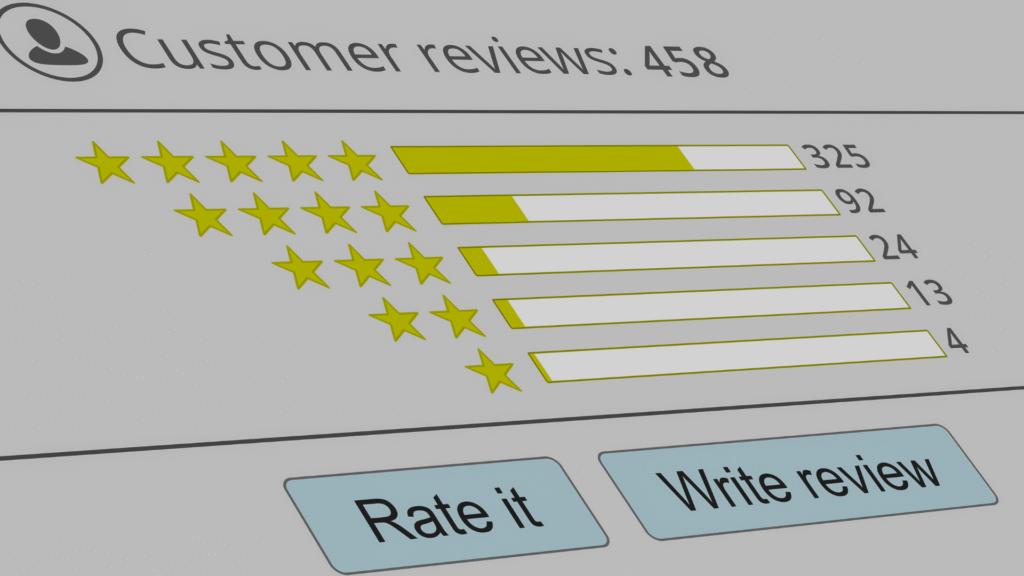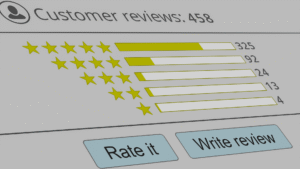In the digital age, where information is readily available at everyone’s fingertips, the reputation of a business is more vulnerable than ever before. Online reputation marketing is the process of managing and improving how your business is viewed online by potential customers. A single negative review or unfavorable news article can have a significant impact on your company’s online reputation. Thus, it is crucial to take a proactive approach to monitor and influence your digital reputation. This article will delve into the importance of online reputation marketing and discuss some strategies for managing it successfully.
Understanding the Importance of Online Reputation Marketing
In today’s digital landscape, the majority of consumers rely heavily on online reviews and ratings when making purchasing decisions. According to a survey by BrightLocal, 88% of consumers trust online reviews as much as personal recommendations. This is why online reputation marketing is so critical. It allows businesses to influence their online reputation proactively, ensuring that the first impression potential customers get is a positive one. A good online reputation can drive customer trust and loyalty, increase your brand’s visibility, and ultimately improve your bottom line.
Online reputation marketing is not only about managing reviews and ratings, but it also involves managing your brand’s overall presence online. This includes search engine results, social media mentions, blog posts, and news articles. Negative content in any of these areas can damage your brand’s reputation and drive potential customers away. On the other hand, positive content can enhance your brand’s image and attract more customers. Therefore, a comprehensive online reputation marketing strategy is crucial for any business that wants to succeed in the digital age.
Moreover, online reputation marketing is not a one-time task but an ongoing process. The digital landscape is constantly changing, and new information about your business can appear online at any time. Therefore, it’s essential to continually monitor and manage your online reputation. This way, you can quickly respond to any negative content and promote positive content, ensuring that your online reputation remains positive.
Implementing Successful Strategies for Online Reputation Management
One of the most effective strategies for online reputation management is to encourage your customers to leave positive reviews. According to a study by Spiegel Research Center, nearly 95% of shoppers read online reviews before making a purchase. Positive reviews not only improve your brand’s online reputation but also increase your visibility in search engine results. Therefore, you should make it easy for your customers to leave reviews, for instance, by providing a direct link to your review page in your emails or on your website.
Responding to reviews, both positive and negative, is another critical strategy for managing your online reputation. Responding to positive reviews shows your customers that you appreciate their feedback, which can strengthen your relationship with them. On the other hand, responding to negative reviews shows that you take customer complaints seriously and are committed to resolving their issues. This can turn a negative situation into a positive one and prevent further damage to your online reputation.
Another effective strategy for online reputation management is to regularly monitor your online presence. This includes tracking your brand’s mentions on social media, blogs, news articles, and review sites. By doing so, you can quickly identify any negative content and respond appropriately. Also, monitoring your online presence allows you to track your brand’s overall reputation over time, which can provide valuable insights for improving your reputation marketing strategy.
Search engine optimization (SEO) is also a crucial strategy for managing your online reputation. SEO involves optimizing your website and online content to rank higher in search engine results. By doing so, you can ensure that positive content about your brand appears before any negative content. This can significantly influence how potential customers perceive your brand when they search for your business online.
Online reputation marketing is a crucial aspect of any business’s digital marketing strategy. It involves proactively managing and improving how your brand is perceived online. This not only influences potential customers’ first impression of your brand but also affects their purchasing decisions. Therefore, businesses should implement effective strategies for online reputation management, including encouraging customer reviews, responding to reviews, monitoring their online presence, and optimizing their content for search engines. By doing so, they can maintain a positive online reputation, increase customer trust and loyalty, and ultimately drive business growth.
















